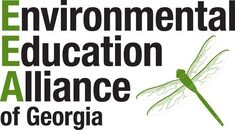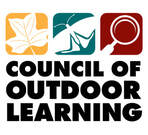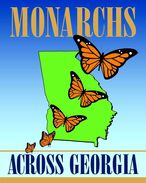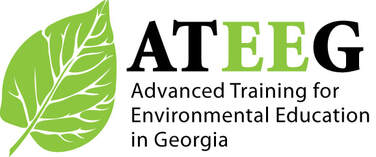Environmental Education Alliance of Georgia
- Our Story
- Our Team
- Our Events
-
Our Resources
- Wildlife Viewing
- Earth Month Activities
- Garden-based Learning
- EcoEngineering Challenges
- Community (Citizen) Science
- Phenomenon-Based Learning
- Problem-Based Learning
- Place-Based Learning
- Project-Based Learning
- Teaching about Climate Change
- Teaching about EJ
- Zero Waste Heroes
- SAGES Project
- Virtual EE Resources
- Environmental Clubs
- Evaluation and Assessment
-
Our Work
- Our News
- Our Impact
- JOIN or GIVE
- Member Portal
- Contact Us
- Outdoor Learning Store
- PassTick2023-4
- Annual Report
- New Page
- Past 2022 EEA Conference
- Past EEA Board 2021-22
- Past 2022 conferenceoverview
- Non-clickable Page
- New Page
- EEA Guest Blog
- Our Story
- Our Team
- Our Events
-
Our Resources
- Wildlife Viewing
- Earth Month Activities
- Garden-based Learning
- EcoEngineering Challenges
- Community (Citizen) Science
- Phenomenon-Based Learning
- Problem-Based Learning
- Place-Based Learning
- Project-Based Learning
- Teaching about Climate Change
- Teaching about EJ
- Zero Waste Heroes
- SAGES Project
- Virtual EE Resources
- Environmental Clubs
- Evaluation and Assessment
-
Our Work
- Our News
- Our Impact
- JOIN or GIVE
- Member Portal
- Contact Us
- Outdoor Learning Store
- PassTick2023-4
- Annual Report
- New Page
- Past 2022 EEA Conference
- Past EEA Board 2021-22
- Past 2022 conferenceoverview
- Non-clickable Page
- New Page
- EEA Guest Blog
OUR WORK
Preliminary Analysis of the State of Environmental Ed in Georgia
Background
The EE Landscape Analysis was designed to identify providers of environmental, sustainability, and outdoor education programs in the southeast, including Georgia. Based on the results of surveys from program providers, the EE Landscape Analysis can be used to spotlight assets such as exemplary models or innovative approaches; determine lessons-learned about program success and sustainability; identify deficits, gaps or needs; and provide insights into data gleaned from the map and field dashboard. With the EE Landscape interactive tools, it is hoped that EE providers will be able to take advantage of opportunities for collaboration or shared infrastructure, gain inspiration from proven programs, increase their impact, and make decisions about effective allocation of resources. Together, the tools can help us work toward the day when every Georgia child feels connected to nature, knowledgeable about the environment, skilled in solving problems, and empowered to tackle environmental challenges.
Interactive Map
Georgia has more environmental education and outdoor learning providers than most states in the region, indicated by survey responses from 104 entities who completed 94 program profiles. That may be a reflection of the wide array of natural wonders we have in a state that spans from the mountains to the sea. But it's also a response to demand, since Georgians identify visiting outdoor education centers as their fourth favorite recreation activity (SCORP Survey 2021), after walking, swimming, and picnicking. Perhaps that's why our state has 45 nature centers, 25 botanical gardens, and at least seven overnight environmental education centers. Georgians even voted to dedicate 75 percent of the tax revenue from the sale of outdoor recreation equipment to the Georgia Outdoor Stewardship Program to acquire and protect priority lands and greenspaces.
Field Trends Dashboard
Who are Georgia's EE Providers? Public agencies, such as the state Department of Natural Resources, county water and public works departments, and municipal parks departments employ nearly half of Georgia’s environmental educators (48%). Additional environmental educators are from non-profit organizations (39%), institutions (7.5%), and the private sector (4.5%). These statistics do not include K-12 teachers who will be included in the second phase of the survey. Of the organizations that responded with financial information, 42% have annual budgets under $100,000. Another 12% have budgets between $101,000 and $250,000; 13% are funded at levels between $251,000 and $500,000; and the remaining 32% have budgets in excess of $500,000.
What Type of Learning Experiences do EE Providers Offer? Direct instruction and field trips are the most common types of service offered by EE providers in Georgia, followed by instructional materials, supplies, and professional development for K-12 teachers. Predominant program topics include, in declining order: conservation, outdoor learning, biodiversity, water, STEM, natural history, gardening, waste, marine and coastal, workforce development, air quality, energy, green building and infrastructure design, and transportation.
All respondents consider what they do to be environmental education, but most also regard their work as outdoor education (64%), conservation education (57%), nature-based learning (47%); STEM education (39%); citizen or community science (30%); education for sustainability (27%); environmental literacy (20%); youth development (19%); place-based learning (17%); health and wellness (15%); environmental justice (14%); climate education (10%); or green schools work (7.5%).
What Audiences are Served? Most of the programs profiled in the survey are targeted to elementary school children (68%), while almost as many are delivered to middle school students (60%), all ages (57%), or high school students (54%). Fewer programs (39%) were delivered to pre-school children. The survey showed 54% of Georgia programs do not track the demographics of students served, making survey results on this topic unreliable. Of the remaining programs that reported data, most (68%) said BIPOC children make up 41-100% of their audience, roughly reflecting the non-white portion of Georgia's population (44%). However, Georgia has a growing racial generation gap with more non-white children than adults.
Note: Of the 62.5% of respondents who reported data on the racial composition of their boards and staff, 50% have no non-white board members; 66% have no non-white senior staff; and 61% have no non-white staff. Only 20% of Georgia EE programs report that a third or more of their staff are Black, indigenous, and people of color, combined. Thirty-nine professional development programs for educators serve K-12 teachers; 37 serve pre-school teachers; 25 include non-formal educators like rangers and naturalists; and 21 include college students preparing to be educators. According to the 2020 Georgia K-12 Teacher and Leader Workforce Report, 31.7% of Georgia teachers are non-white. Nearly three-quarters of EE professional development programs for teachers are delivered to audiences that include at least 21% non-white educators.
What Type of Learning Experiences do EE Providers Offer? Direct instruction and field trips are the most common types of service offered by EE providers in Georgia, followed by instructional materials, supplies, and professional development for K-12 teachers. Predominant program topics include, in declining order: conservation, outdoor learning, biodiversity, water, STEM, natural history, gardening, waste, marine and coastal, workforce development, air quality, energy, green building and infrastructure design, and transportation.
All respondents consider what they do to be environmental education, but most also regard their work as outdoor education (64%), conservation education (57%), nature-based learning (47%); STEM education (39%); citizen or community science (30%); education for sustainability (27%); environmental literacy (20%); youth development (19%); place-based learning (17%); health and wellness (15%); environmental justice (14%); climate education (10%); or green schools work (7.5%).
What Audiences are Served? Most of the programs profiled in the survey are targeted to elementary school children (68%), while almost as many are delivered to middle school students (60%), all ages (57%), or high school students (54%). Fewer programs (39%) were delivered to pre-school children. The survey showed 54% of Georgia programs do not track the demographics of students served, making survey results on this topic unreliable. Of the remaining programs that reported data, most (68%) said BIPOC children make up 41-100% of their audience, roughly reflecting the non-white portion of Georgia's population (44%). However, Georgia has a growing racial generation gap with more non-white children than adults.
Note: Of the 62.5% of respondents who reported data on the racial composition of their boards and staff, 50% have no non-white board members; 66% have no non-white senior staff; and 61% have no non-white staff. Only 20% of Georgia EE programs report that a third or more of their staff are Black, indigenous, and people of color, combined. Thirty-nine professional development programs for educators serve K-12 teachers; 37 serve pre-school teachers; 25 include non-formal educators like rangers and naturalists; and 21 include college students preparing to be educators. According to the 2020 Georgia K-12 Teacher and Leader Workforce Report, 31.7% of Georgia teachers are non-white. Nearly three-quarters of EE professional development programs for teachers are delivered to audiences that include at least 21% non-white educators.
Program Evaluation and Quality
From an initial review, it appears that the majority of EE providers regularly evaluate the effectiveness of their programs (84%). This includes those who conduct post-program surveys (45%); qualitative or informal reviews (42.5%); pre- and post-assessments (26.5%); rubrics by which student work is assessed (9.5%); and those who use outside evaluators (4%).
Taking Stock of Georgia Assets
An exciting part of the EE Landscape Analysis is noting the assets and exemplary initiatives in our state. Here are some highlights from organizations that responded to the survey.
School-based EE and Outdoor Learning. Although not evident from the first survey, K-12 teachers provide much of the EE in Georgia. For more than 20 years, EEA’s Council of Outdoor Learning has been promoting the use of school grounds in Georgia for learning and stewardship activities, nature experiences, and opportunities to solve environmental problems. In many Georgia schools, gardens are considered a gateway to outdoor learning. Georgia-based Captain Planet Foundation has provided supplies, installation, curriculum and teacher training for more than 500 school gardens, and the prevalence of farm-to-school and agriculture programs in our state have been key influencers of school-based outdoor learning.
Georgia's Standards of Excellence provide a framework for all public school students to investigate the real world through "three-dimensional learning," an approach consistent with environmental and outdoor education. The next phase of the survey will show the extent to which Georgia students connect with nature through field studies, trips to immersive "outdoor schools," and schoolyard investigations. Some Georgia schools are even organized around themes such as expeditionary learning, using the environment as an integrating context for learning, sustainability, and environmental problem-solving as a pathway to STEM certification.
Georgia is a national leader in outdoor education, in several ways that relate to school-based learning:
Participatory Science (formerly citizen science). Participatory science is a way to engage students in data collection and analysis that contributes to authentic scientific research. EEA’s Monarchs Across Georgia organizes the Symbolic Migration project (part of Journey North) and engages up to 28,000 students per year in learning about endangered monarchs by exchanging paper butterflies with students in Mexico, where the species overwinters. The City Nature Challenge, hosted by Fernbank Museum; the Monarch Health Project, run by the Altizer Lab at University of Georgia; the Great Georgia Pollinator Census, organized by the University of Georgia; as well as Hack the Earth and the School Air Quality Monitoring Project, run by the Saikawa Lab at Emory University are examples of Georgia-grown participatory science projects.
Environmental Stewardship. Stewardship is a critically important part of environmental education, where participants take civic action or design and carry out projects that solve authentic, real world environmental projects on a local level. Schools, garden clubs, and homeowners across the state design and plant MAG-certified pollinator habitats to help protect monarch butterflies and other vulnerable species. 29,000+ Georgians have learned how to be environmental stewards by participating in Adopt-a-Stream water monitoring projects and Rivers Alive cleanups, which are managed by the Department of Natural Resources and fiscally-sponsored by EEA. West Atlanta Watershed Alliance is a non-profit organization that engages community members in stewardship activities ranging from removal of invasive plant species to monitoring trash traps and cleaning creeks near the Outdoor Activity Center and Cascade Springs Nature Preserve.
Equity and Inclusion in EE and Outdoor Learning. Georgia is fortunate to be the home of many nonprofit environmental organizations led by people of color. They are leading the charge to increase inclusiveness and equitable access to nature experiences and outdoor learning. EEA collaborates with 12 of these organizations to create and present workshops, online courses, and inclusive teaching resources for environmental educators.
Professional Learning and Teaching Resources. As the “backbone organization” for EE and outdoor learning in Georgia, the Environmental Education Alliance works to increase capacity and advance the field. EEA is Georgia’s only approved provider of NAAEE-approved Guidelines for Excellence training and operates the first nationally-accredited certification program for environmental educators: ATEEG. EEA’s Monarchs Across Georgia (MAG) presents educator workshops across the state and a Pollinator Symposium every other year. And EEA’s Council of Outdoor Learning (CoOL) hosts the Outdoor Learning Symposium annually, provides a CoOL Toolkit, and offers a curated collection of resources for teaching outside. In addition, EEA is launching a series of online self-paced courses and provides customized professional learning for school districts and nonformal EE providers. EEA partners with GA DNR to provide the EEinGeorgia.org database.
State and Local EE Funding for Environmental and Outdoor Education. The Georgia legislature voted to create a new state-level outdoor learning grant program in the 2022 legislative session. This action arose from the bipartisan Georgia Senate Study Committee on Outdoor Learning, chaired by Sen. Sheikh Rahman. The Study Committee researched the value of outdoor learning, conducted site visits, held hearings, and made recommendations regarding what is needed to expand outdoor learning so that every child in Georgia has regular opportunities to participate, and our state can benefit from children who become environmental problem-solvers. The GA Department of Education is currently determining how the grants will be administered.
In addition, several state agencies fund and operate outdoor education as part of their core missions. For instance, the Department of Natural Resources manages state parks and wildlife centers, makes Wildlife Viewing Grants, and coordinates Project Wild; the University System runs the state botanical garden and, through the Extension Service and 4-H, runs six residential environmental education centers; Soil and Water Conservation Districts conducts teacher workshops; and the Environmental Protection Division coordinates the Adopt-A-Stream and Rivers Alive programs, as well as the www.eeingeorgia.org resource database, in partnership with EEA.
Funding for environmental and outdoor education in Georgia comes from grants, foundations, public agencies, school districts, businesses, and individual donors. For information on sources of funds that are available for providers and educators in this state, check out www.EEinGeorgia.org under the News tab at top left. Grants are listed in deadline order and refreshed monthly.
School-based EE and Outdoor Learning. Although not evident from the first survey, K-12 teachers provide much of the EE in Georgia. For more than 20 years, EEA’s Council of Outdoor Learning has been promoting the use of school grounds in Georgia for learning and stewardship activities, nature experiences, and opportunities to solve environmental problems. In many Georgia schools, gardens are considered a gateway to outdoor learning. Georgia-based Captain Planet Foundation has provided supplies, installation, curriculum and teacher training for more than 500 school gardens, and the prevalence of farm-to-school and agriculture programs in our state have been key influencers of school-based outdoor learning.
Georgia's Standards of Excellence provide a framework for all public school students to investigate the real world through "three-dimensional learning," an approach consistent with environmental and outdoor education. The next phase of the survey will show the extent to which Georgia students connect with nature through field studies, trips to immersive "outdoor schools," and schoolyard investigations. Some Georgia schools are even organized around themes such as expeditionary learning, using the environment as an integrating context for learning, sustainability, and environmental problem-solving as a pathway to STEM certification.
Georgia is a national leader in outdoor education, in several ways that relate to school-based learning:
- Our students have created more NWF-certified schoolyard habitats than any other state in the country. And the Cobb County School Board approved a first-in-the-nation model policy that protects schoolyard habitats (Policy FEDA-R, p 45) by requiring a public comment period before they can be repurposed or removed.
- The University of Georgia requires all students to take an environmental literacy course before graduation, and two private universities in our state offer environmental education degree programs.
- EEA’s Council of Outdoor Learning (CoOL) organizes and hosts an Outdoor Learning Symposium every year. This event focuses on content and instructional strategies for teaching outside as well as translating research into practice; designing spaces that enhance outdoor learning; and improving program effectiveness, impact, and sustainability. Georgia has provided technical assistance in how to conduct outdoor classroom symposia to other states.
- EEA's ATEEG runs one of three accredited certification programs for environmental educators in the country.
Participatory Science (formerly citizen science). Participatory science is a way to engage students in data collection and analysis that contributes to authentic scientific research. EEA’s Monarchs Across Georgia organizes the Symbolic Migration project (part of Journey North) and engages up to 28,000 students per year in learning about endangered monarchs by exchanging paper butterflies with students in Mexico, where the species overwinters. The City Nature Challenge, hosted by Fernbank Museum; the Monarch Health Project, run by the Altizer Lab at University of Georgia; the Great Georgia Pollinator Census, organized by the University of Georgia; as well as Hack the Earth and the School Air Quality Monitoring Project, run by the Saikawa Lab at Emory University are examples of Georgia-grown participatory science projects.
Environmental Stewardship. Stewardship is a critically important part of environmental education, where participants take civic action or design and carry out projects that solve authentic, real world environmental projects on a local level. Schools, garden clubs, and homeowners across the state design and plant MAG-certified pollinator habitats to help protect monarch butterflies and other vulnerable species. 29,000+ Georgians have learned how to be environmental stewards by participating in Adopt-a-Stream water monitoring projects and Rivers Alive cleanups, which are managed by the Department of Natural Resources and fiscally-sponsored by EEA. West Atlanta Watershed Alliance is a non-profit organization that engages community members in stewardship activities ranging from removal of invasive plant species to monitoring trash traps and cleaning creeks near the Outdoor Activity Center and Cascade Springs Nature Preserve.
Equity and Inclusion in EE and Outdoor Learning. Georgia is fortunate to be the home of many nonprofit environmental organizations led by people of color. They are leading the charge to increase inclusiveness and equitable access to nature experiences and outdoor learning. EEA collaborates with 12 of these organizations to create and present workshops, online courses, and inclusive teaching resources for environmental educators.
Professional Learning and Teaching Resources. As the “backbone organization” for EE and outdoor learning in Georgia, the Environmental Education Alliance works to increase capacity and advance the field. EEA is Georgia’s only approved provider of NAAEE-approved Guidelines for Excellence training and operates the first nationally-accredited certification program for environmental educators: ATEEG. EEA’s Monarchs Across Georgia (MAG) presents educator workshops across the state and a Pollinator Symposium every other year. And EEA’s Council of Outdoor Learning (CoOL) hosts the Outdoor Learning Symposium annually, provides a CoOL Toolkit, and offers a curated collection of resources for teaching outside. In addition, EEA is launching a series of online self-paced courses and provides customized professional learning for school districts and nonformal EE providers. EEA partners with GA DNR to provide the EEinGeorgia.org database.
State and Local EE Funding for Environmental and Outdoor Education. The Georgia legislature voted to create a new state-level outdoor learning grant program in the 2022 legislative session. This action arose from the bipartisan Georgia Senate Study Committee on Outdoor Learning, chaired by Sen. Sheikh Rahman. The Study Committee researched the value of outdoor learning, conducted site visits, held hearings, and made recommendations regarding what is needed to expand outdoor learning so that every child in Georgia has regular opportunities to participate, and our state can benefit from children who become environmental problem-solvers. The GA Department of Education is currently determining how the grants will be administered.
In addition, several state agencies fund and operate outdoor education as part of their core missions. For instance, the Department of Natural Resources manages state parks and wildlife centers, makes Wildlife Viewing Grants, and coordinates Project Wild; the University System runs the state botanical garden and, through the Extension Service and 4-H, runs six residential environmental education centers; Soil and Water Conservation Districts conducts teacher workshops; and the Environmental Protection Division coordinates the Adopt-A-Stream and Rivers Alive programs, as well as the www.eeingeorgia.org resource database, in partnership with EEA.
Funding for environmental and outdoor education in Georgia comes from grants, foundations, public agencies, school districts, businesses, and individual donors. For information on sources of funds that are available for providers and educators in this state, check out www.EEinGeorgia.org under the News tab at top left. Grants are listed in deadline order and refreshed monthly.
Understanding and Addressing Deficits and Needs
To advance the field of environmental education and outdoor learning, it is not only necessary to recognize and promote exemplary programs, initiative, resources, organizations, and working conditions, but also to identify any gaps, barriers, and deficits, in the interest of making improvements. An analysis of the EE Landscape Analysis data by consulting firm 2nd Nature for SEEA resulted in these recommendations for Georgia and these recommendations for each of the other southeastern states. 2nd Nature's suggestions for Georgia included the following:
- Increase diversity of environmental education staff and leadership to better reflect demographics of the state.
- Address inequities in pay and benefits (including entry level salaries) for environmental education relative to other fields.
- Increase opportunities for engagement at the early childhood level
- Provide guidance and training around the importance of evaluation to strengthen programs.
- Address gaps in services found across the state in rural areas, areas with the highest social vulnerability index, highest obesity rates, and lowest income, particularly in southeastern counties.
- Provide guidance to environmental education providers concerning the importance of collecting demographic information.
Next Steps
Funds are being sought to launch the next phase of the EE Landscape Analysis in 2023, focusing on how environmental education and outdoor learning is practiced at schools, in schoolyards, and among teachers. A survey will be distributed at teacher, school, and district levels.
In addition, EEA will convene interested parties to consider ways to address needs, gaps, and inequities; as well as how to share information on assets and strengths, in the interest of improving and advancing the fields of environmental education and outdoor learning in Georgia and beyond.
If you would like to be part of a task force that will dig deeper into interpreting the data and learning about our state's assets and needs, please contact EEA at [email protected]. All are welcome to assist in this work!
In addition, EEA will convene interested parties to consider ways to address needs, gaps, and inequities; as well as how to share information on assets and strengths, in the interest of improving and advancing the fields of environmental education and outdoor learning in Georgia and beyond.
If you would like to be part of a task force that will dig deeper into interpreting the data and learning about our state's assets and needs, please contact EEA at [email protected]. All are welcome to assist in this work!
|
Environmental Education Alliance, Inc.
P.O. Box 801066 | Acworth, GA 30101 EEA does not does not discriminate on the basis of race, color, national origin, sex, age, or disability in its program , activities, or employment. For more information on EEA's non-discrimination commitment click here . Grievance officer may be contacted at [email protected] |
Proudly powered by Weebly
|



